How to Teach Reading for Kids at Home with Simple Tips
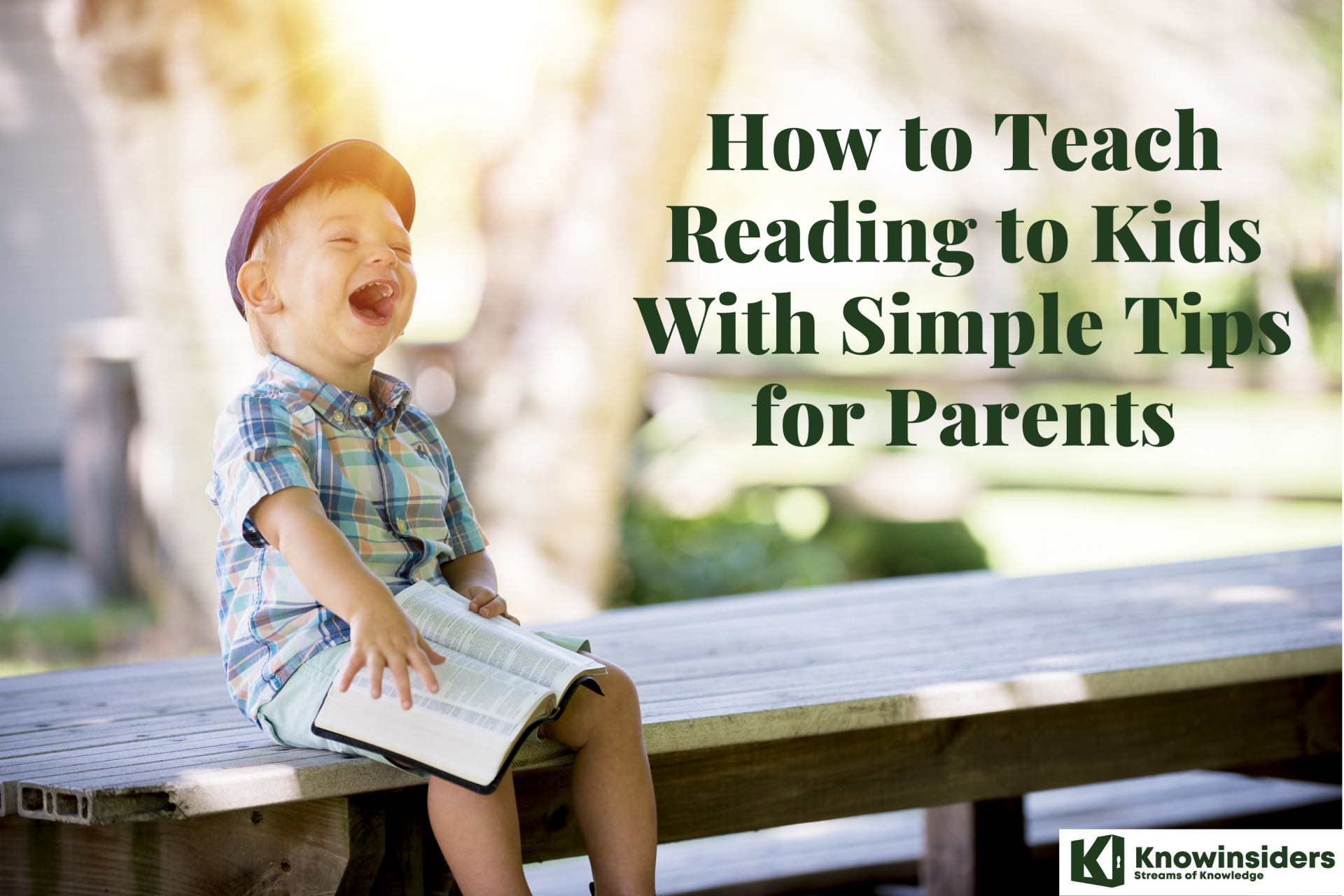 |
| How to Teach Reading to Kids With Simple Tips for Parents |
| Table of Content |
Reading is an important skill that children will use daily for the rest of their lives. While many children learn to read at school, parents can enhance the experience by offering support at home. This support can begin as soon as your child is born.
This article helps parents and families understand the many different skills involved with teaching your child to learn to read and how to support your child's reading development at home.
At which age should kids learn to read?
Parents want to help their kids learn how to read but don’t want to push them to the point where they hate reading.
Giving a child diverse experiences that seem to have nothing to do with reading can also help a child’s reading ability. By having a variety of experiences, children will be able to apply their own knowledge to better comprehend texts about various topics.
Here are some ideas:
Challenge kids to find everything in the house that starts with a specific sound; Stretch out one word in a sentence.
Ask your child to “pass the salt” but say the individual sounds in the word “salt” instead of the word itself.
Ask your child to figure out what every family member’s name would be if it started with a “b” sound.
Read your child’s favorite book over and over again. For books that children know well.
Most children don’t start actually “reading” until around 6 years old.
Once your child is ready to begin reading, you will need to find a systematic and explicit program that teaches phonemic awareness and phonics. This is essential. Learning to read is like breaking a cipher code (and contrary to what the title of this post suggests, it is NOT easy). Every child must learn the code and it makes the most sense to teach this explicitly rather than depending on kids figuring it out on their own. Please also recognize that although the suggestions below are labeled as “steps”, they are not necessarily in consecutive order, nor are they in order of importance. The information you will find here is simply a guide to help you see how each of the components of reading fit together for your pre-reader.
Essential Skills For Reading Success
Decoding
Decoding is the ability to sound out words children have heard before but haven’t seen written out. This is a vital step in the reading process as it forms the foundation for other reading skills.
Decoding heavily relies on an early language skill called phonemic awareness. Phonemic awareness is the ability to hear and manipulate different sounds into words. Children develop this awareness when learning about syllables, words, and sounds (phonemes).
Phonics
Phonics is the ability to recognize the connection between sounds and letters they make. This process of mapping the sounds in words to written words is a very important reading skill. Children first decode the words into sounds and encode the sounds into words as they write and spell.
Vocabulary
A good vocabulary is a fundamental part of academic success. This reading skill is necessary to understand the meaning of words, their definitions, and their context.
The more words a child knows, the better they are at reading and understanding the texts they read
Fluency
Fluency is the ability to read aloud with understanding, accuracy, and speed. It is a skill needed for good reading comprehension. Kids fluent in reading know how to read smoothly, at a good pace, using proper tone, and without making too many errors.
Sentence Construction & Cohesion
Sentence construction and cohesion may seem like a writing skill, but it’s an essential reading skill. Connecting ideas between and within the sentences are called cohesion, and these skills are essential for reading comprehension.
Reading Comprehension
Understand the meaning of the text – both in storybooks and information books. In fiction books, children imagine the characters and share an emotional and adventurous journey with them. In non-fiction books, children gain new information, which deepens their understanding of new topics and concepts. Reading comprehension is a complex skill that requires time and practice to develop fully.
Reasoning & Background Knowledge
This skill helps the child use the background knowledge to make inferences and draw conclusions. Most readers can relate what they have read to what they know. They can also read between the lines to pull out the information when it’s not literally spelled out in the text.
Working Memory & Attention
These skills are closely related but different and are part of a group of abilities known as executive function. When children read, attention helps them absorb the information from the text, and working memory allows them to retain that information. This helps them gain meaning and build knowledge from what they read.
Tips For How To Teach A Child To Read
1. Be patient; the best way to teach kids to read is to make it fun!
 |
| Photo: english |
Every child learns at his or her own pace, so always remember the single most important thing you can do is to make it enjoyable. By reading regularly, mixing things up with the activities you choose, and letting your child pick out their own books occasionally, you'll instil an early love of reading and give them the best chance at reading success in no time.
2. Use songs and nursery rhymes to build phonemic awareness
Children's songs and nursery rhymes aren't just a lot of fun—the rhyme and rhythm help kids to hear the sounds and syllables in words, which helps them learn to read. A good way to build phonemic awareness (one of the most important skills in learning to read) is to clap rhythmically together and recite songs in unison. This playful and bonding activity is a fantastic way for kids to implicitly develop the literacy skills that will set them up for reading success.
3. Flashcards are friends
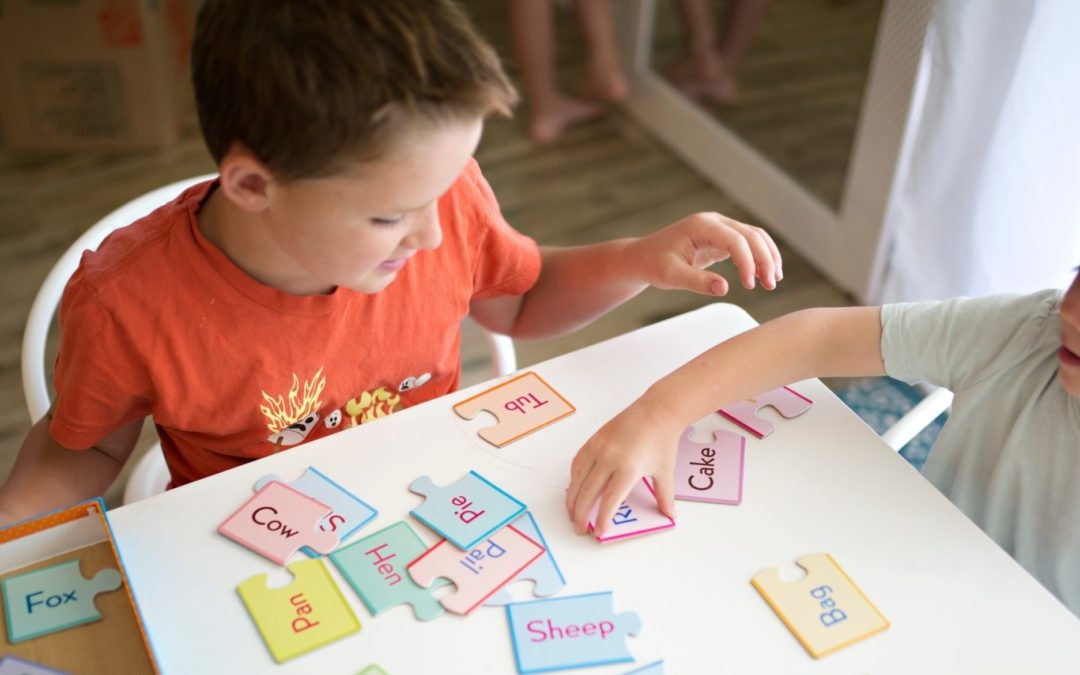 |
| Photo: fhcsl |
These are not your high school SAT flashcards but a simple tool to help your little one memorize and internalize the sight and sound of certain words and letters. Start slow with about five simple three-letter words like “cat,” “pig,” and “dog” written out on cards. Go over them with your child, pointing with your index finger as you slowly pronounce the sound each letter makes to eventually form the word. Then start flashing them to your child. Repetition and patience will be your best friends during this exercise.
4. Be a good (Reading) Example
Even if your child is fascinated with books from an early age, her fascination will quickly dwindle if she does not see reading modeled in her home. If you are not an avid reader yourself, make a conscious effort to let your children see you reading for at least a few minutes each day! Read a magazine, a cookbook, a novel, your Bible…it’s up to you! But show your child that reading is something that even adults need to do. If you have a son, share this article with your husband. Sons need to see their fathers read, especially since it is not something that young energetic boys are naturally prone to doing.
As parents, we can sometimes get wrapped up with what exactly our children should be doing to be successful. But we often forget that children often learn by example. Grab a book and take a load off…for your child’s sake, of course!
5. Print familiar words and stimulate visual learning
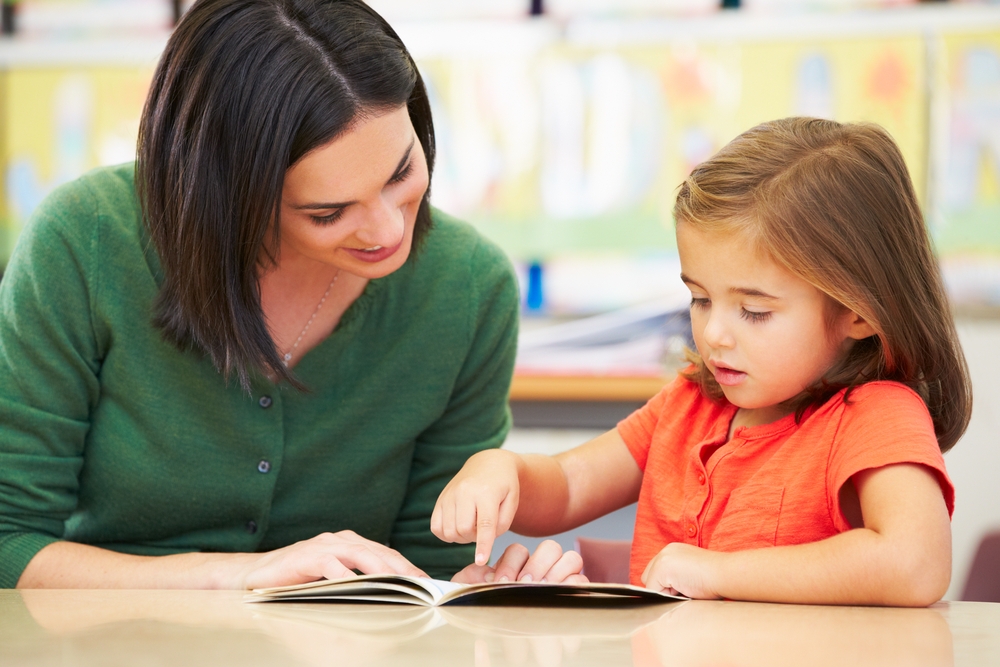 |
| Photo: kidsfirstcommunity |
Visual learning is one of the key aspects of learning to read. Whether at home or outside, encourage your child to spot the common letters, pictures, and words on posters, billboards, road signs, etc.
Let them read aloud the word. Whether you are in a park, at home, or in a mall, encourage them to spot the word!
At the door of your child’s room or any other personal belongings of the child, write their name on it in ‘print script’. Children become aware of certain signs on billboards, posters, magazines in print even before they learn about different letters.
Print script means labeling the things in the house by taking a print, as children will be able to spot the letters easily anywhere they see them. The print script helps children visually learn and identify letters around them. Children learn to recognize their own names even before they know the letters.
In the print script, different things in the house can be labeled and a fun activity to spot them in a book can be encouraged. Later, from one word move to short sentence labeling at home. This may work especially if the child is still developing an interest to hold the book and read.
Games are a great way to encourage visual learning and SplashLearn’s reading games help kids retain concepts and develop fluency.
6. Play word games at home or in the car
Building on from the previous step, introduce simple word games on a regular basis. Focus on playing games that encourage your child to listen, identify and manipulate the sounds in words. For example, start by asking questions like “What sound does the word start with?” “What sound does the word end with?” “What words start with the sound ?” and “What word rhymes with ?”.
7. Understand the core skills involved in teaching kids to read
It's important to remember that learning to read involves various different skills. These are the skills all children need in order to successfully learn how to read. In summary, these include:
- Phonemic awareness – the ability to hear and manipulate the different sounds in words
- Phonics – recognising the connection between letters and the sounds they make
- Vocabulary – understanding the meaning of words, their definitions, and their context
- Reading comprehension – understand the meaning of text, both in storybooks and information books
- Fluency – the ability to read aloud with speed, understanding and accuracy
8. Read together on a daily basis and ask questions about the book
A lot of people don't realise just how many skills can be picked up through the simple act of reading to a child. Not only are you showing them how to sound out words, you're also building key comprehension skills, growing their vocabulary, and letting them hear what a fluent reader sounds like. Most of all, regular reading helps your child to develop a love of reading, which is the best way to set them up for reading success.
Strengthen your child's comprehension skills by asking questions while reading. For younger children, encourage them to engage with the pictures (e.g. “Do you see the boat? What colour is the cat?”). For older children, ask questions about what you've just read, like “Why do you think the little bird was afraid?” “When did Sophie realise she had special powers?”
How To Improve Reading Skills Of A Child
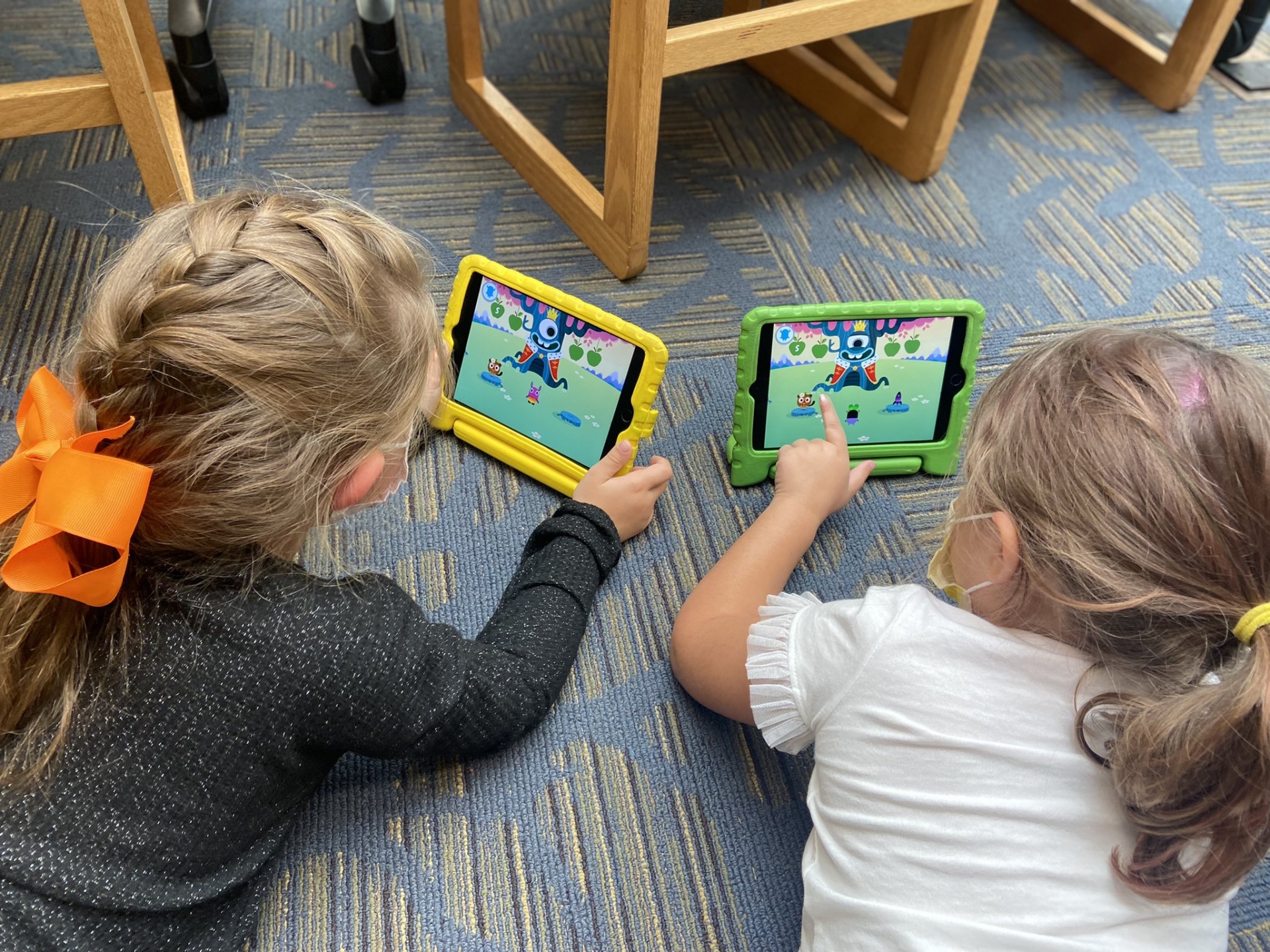 |
| Photo: Twitter |
Whatever reading problems your child is going through, there are always ways to help. Here are some ways you can help your child overcome their reading problems:
- Take note of what you are seeing when your child is reading. When you observe your child, you may start seeing patterns. Talk with your child’s teacher or caregiver to find out if they have observed something similar.
- Work on building reading skills at home. Teach sight words for fluency and quick recall. Use flashcards, point out words on the hoardings, brand names, or store names
- Always remember that if your child is struggling with any skill, it can make them feel inferior, and that can take a toll on their self-esteem. As your child works on their reading skills, make sure you praise their efforts and celebrate their small wins.
- Choose books that contain detailed visual illustrations to help your child connect the text with the scene.
- Get your child enrolled in online classes. PlanetSpark’s programme uses the essential skills for reading success to unlock all aspects of reading focusing on phonics, comprehension, vocabulary, phonemic awareness, and reading for meaning.
Common Reading Problems Of ChildrenIssues with decodingBeginner readers may struggle when they meet new or unfamiliar terms, but typically decoding becomes easier with repeated practice of reading the text out loud. If a child continues to struggle, there may be an underlying difficulty or a physical impairment that does not allow them to hear the sounds or see the letters. Poor comprehension of reading skillsSome children can read like a pro but may not be able to tell you what they have read. This indicates a problem of incomprehension. These children may find the same difficulty when their teachers or parents read aloud. SpeedThe more children read, the more they expand their vocabulary. They begin to recognize more words by sight, enabling them to read faster. If speed is the issue with your child, slow processing of information could be the problem. Since reading is a cognitively demanding task, it involves holding information in the mind while continuously processing the text. This can exhaust the children with slow processing. Such children may require extra time to complete tasks that require extensive reading. Mixed reading difficultiesMixed reading problems in kids include decoding words and difficulty with comprehension. They have challenges when it comes to reading words, retaining information, and understanding the text. These problems could be due to a reading disorder. Although some kids learn slower than others, if you notice any difficulty that affects your child’s daily life, it should be evaluated by a professional. |
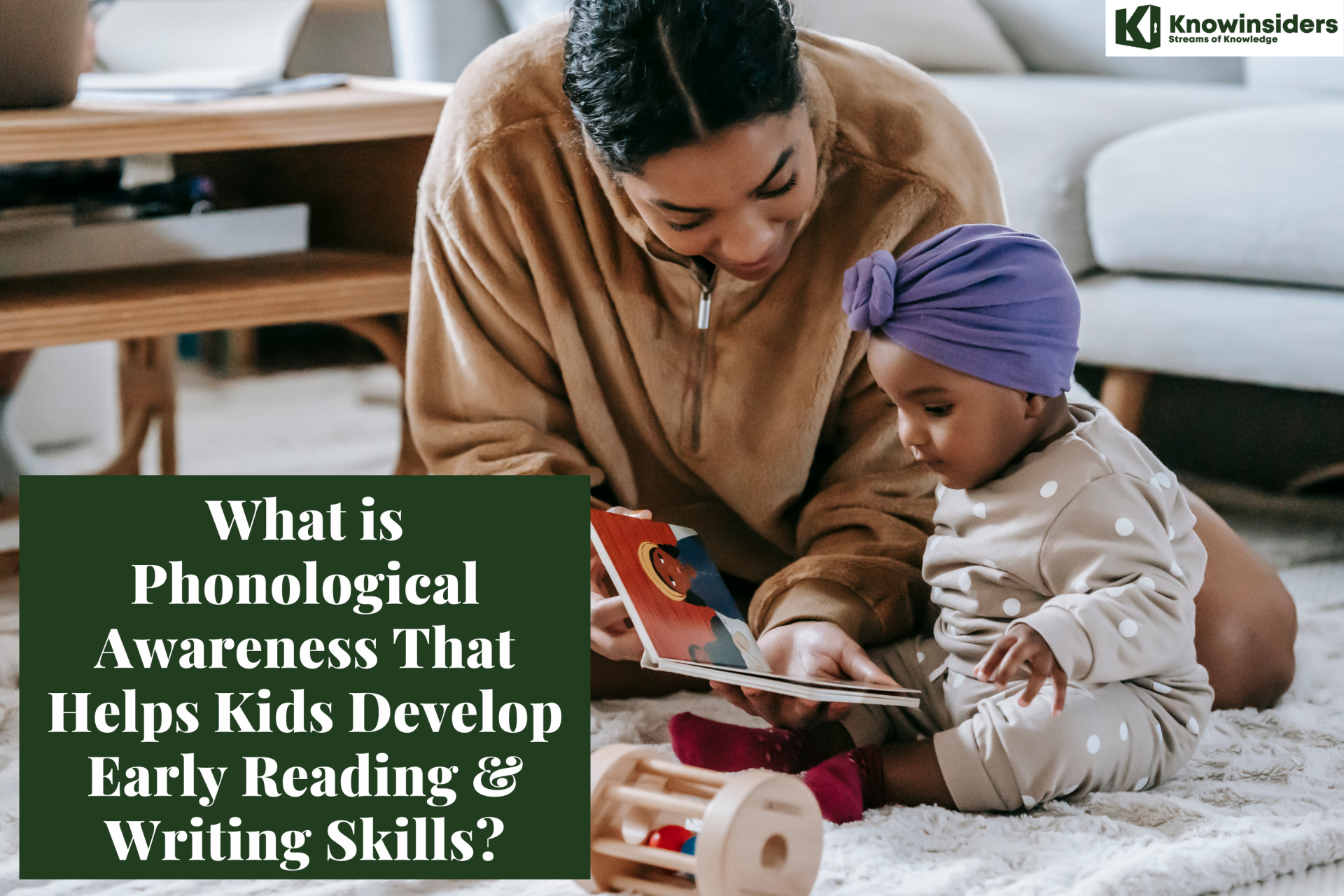 What is Phonological Awareness That Helps Kids Develop Early Reading & Writing Skills? What is Phonological Awareness That Helps Kids Develop Early Reading & Writing Skills? Surely when it comes to Phonological Awareness, many parents will not be able to imagine what this method is and how it works for children's ... |
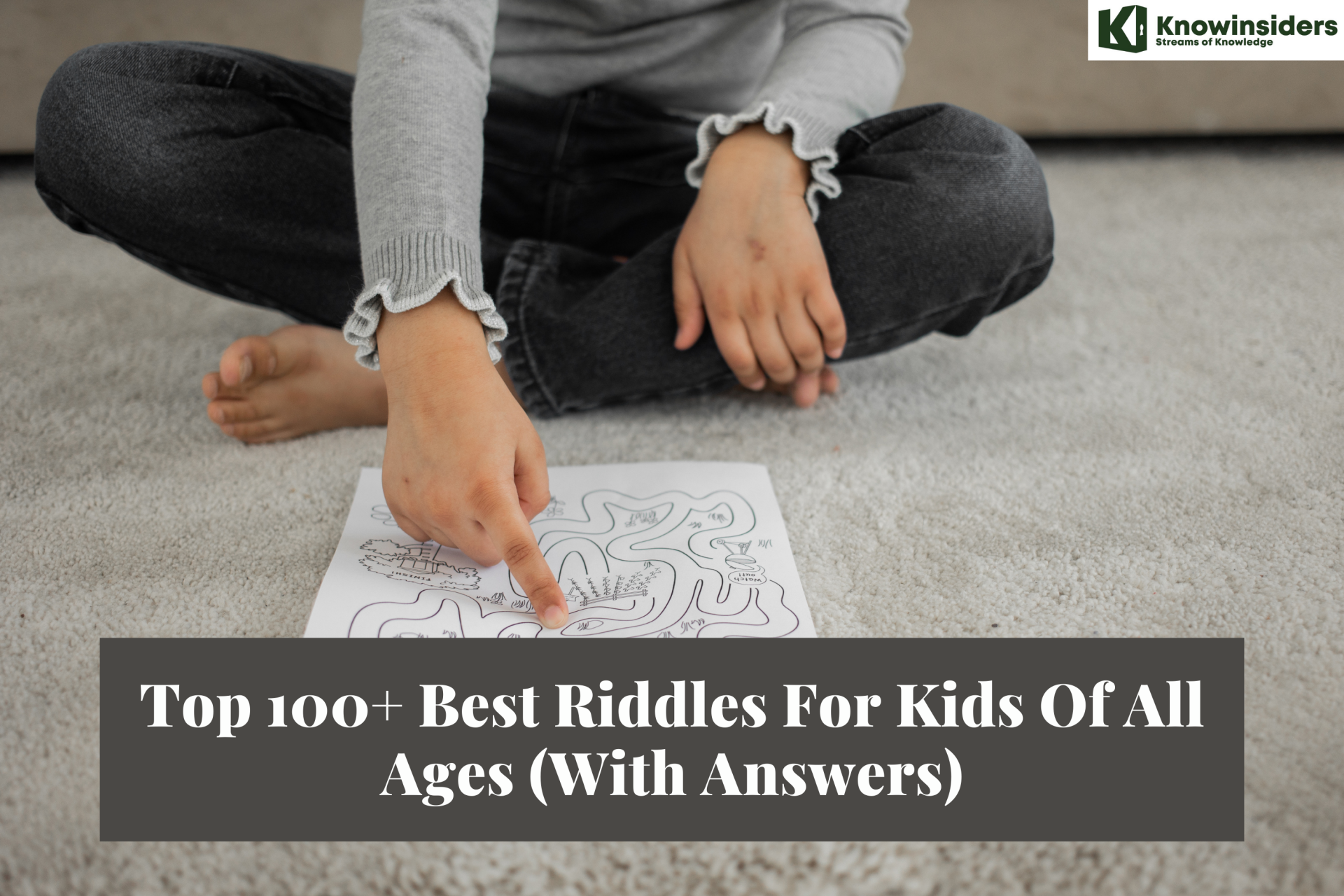 Top 100+ Best Riddles For Kids Of All Ages With Best Answers Top 100+ Best Riddles For Kids Of All Ages With Best Answers Riddles for kids may seem easy, but you'll have to be sharp to solve them. These are 100 awesome riddles for kids of all ages. ... |
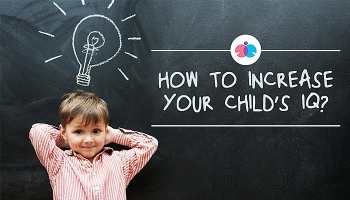 4 Simple Ways to Increase IQ for Kids: Play Games, Read Books, Exercise and Talk 4 Simple Ways to Increase IQ for Kids: Play Games, Read Books, Exercise and Talk Check out top 4 easy ways for children to have a higher IQ: Play games, read books, exercise and talk - According to Harvard University ... |























